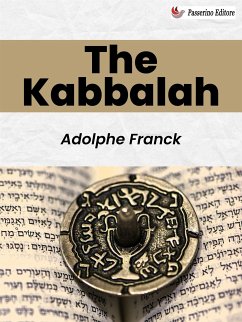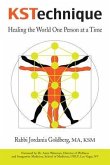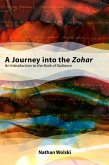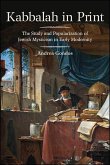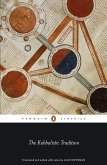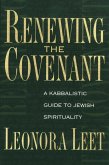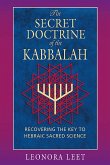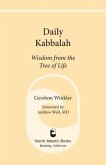The Kabbalah, also spelled Kabalah or Qabalah, is a mystical and esoteric tradition within Judaism. It is often referred to as Jewish mysticism and is based on ancient Jewish texts, primarily the Zohar. The word "Kabbalah" comes from the Hebrew root word "kabel," which means "to receive." The Kabbalah is concerned with understanding and interpreting the hidden meanings of the Torah and other Jewish religious texts. It seeks to explore the nature of God, the universe, and the human soul. One of the key concepts in Kabbalah is the Tree of Life, which is a symbolic representation of the divine and the different realms of existence. It consists of ten interconnected spheres called sefirot, each representing different aspects of God and the universe. The Kabbalah teaches that there are deeper levels of meaning and understanding beyond the literal interpretation of the Torah. It seeks to uncover the spiritual and mystical dimensions of Jewish teachings. The study of Kabbalah involves various methods such as meditation, visualization, and contemplation to gain insights into the divine mysteries. Kabbalistic teachings cover a wide range of topics, including cosmology, metaphysics, ethics, and the nature of good and evil. It explores concepts such as the divine emanations, the soul's journey, the nature of God's attributes, and the interplay between the physical and spiritual realms. Historically, the Kabbalah has been transmitted orally and through written texts. The Zohar, a key Kabbalistic work, is attributed to Rabbi Shimon bar Yochai and is considered one of the foundational texts of Kabbalah. Other important Kabbalistic texts include the Sefer Yetzirah, the Bahir, and various commentaries and interpretations by Kabbalistic scholars throughout history. While the Kabbalah originated within Judaism, its teachings and influence have extended beyond Jewish religious circles. Over the centuries, Kabbalistic ideas and practices have been embraced and studied by individuals from various religious and spiritual traditions, including Christianity, Hermeticism, and New Age movements. It's important to note that the study of Kabbalah is traditionally reserved for individuals who have a strong foundation in Jewish law and teachings. In recent years, there has been a popularization of Kabbalistic ideas and practices, leading to the emergence of various Kabbalah centers and organizations offering teachings to a wider audience. However, interpretations and practices outside of traditional Jewish contexts may vary significantly. Adolphe Franck (1809 - 11 March 1893) was a French-Jewish philosopher who specialised in Jewish mysticism.
Dieser Download kann aus rechtlichen Gründen nur mit Rechnungsadresse in A, B, BG, CY, CZ, D, DK, EW, E, FIN, F, GR, HR, H, IRL, I, LT, L, LR, M, NL, PL, P, R, S, SLO, SK ausgeliefert werden.

